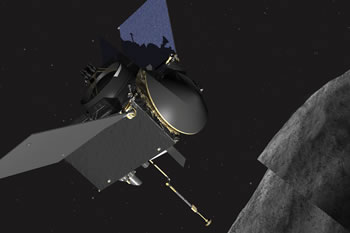Improve Health Care, Transportation, Defense and Space Systems
Established in 1961 as the nation’s first systems engineering academic department, UA systems engineering operates on the premise that to work effectively and beneficially, large, complex systems must be designed not only with imagination and technical skill but with rigorous attention to the design process and interactions among system components (machines, people, software, hardware, materials, and energy), other systems and society. Courses in probability and statistics, system theory, decision analysis and simulation prepare students for careers in private industry and with public agencies.
Academics > Research Areas > Outside the Classroom > Career Paths >
Systems engineers focus on the big picture -- but know the devil is in the details.
Academic Focus Areas
- System Integration
- Modeling and analysis
- Probability and statistics
- System theory
- Decision analysis
- Simulation
Research Areas
Industrial and Manufacturing Operations - engineering management, cost estimation and optimization, computer integrated manufacturing, supply chain management human factors engineering and mining logistics
Computer technology and data systems - Automation, embedded computer systems and software, data management and filtering
Biomedical Systems - healthcare delivery networks cell regulatory networks, computational and systems biology
Infrastructures and Energy - solar power systems, water/energy/agriculture/transportation infrastructures, communications networking, energy network distribution
Security - emergency preparedness traffic control and evacuation, crowd control, border security
UA systems engineering researchers are handling ground systems engineering for NASA’s OSIRIS-REx mission, set to launch in 2016. The researchers are studying an asteroid that will be scooped up and returned to them for analysis – providing students with outstanding and ongoing research opportunities for years to come.
Systems Engineering Program
Outside the Classroom
Systems engineering faculty and student researchers attend regional, national and international conferences and engage in outreach programs to inspire future systems engineers. In 2015, for the fourth consecutive year, student researchers won the award for best student research paper at the annual conference of the Intelligent Transportation Society of Arizona.
2015 marks the third year of Science of Baseball, professor Ricardo Valerdi’s curriculum that uses baseball statistics to inspire middle-school kids in math and science. Students from several engineering departments are helping Valerdi teach the teachers how to incorporate the curriculum in their classrooms – and are sharing their own love of science and engineering with kids at baseball camp.
Career Paths
With their technical expertise and understanding of business organizations; finely tuned problem-solving and critical thinking skills, systems engineers are hired by private companies and government agencies to build machine components, streamline computer networks, improve worker productivity, develop product analysis and testing protocols, evaluating diagnostic methods in biomedical laboratories and manage systems for aerospace programs.



